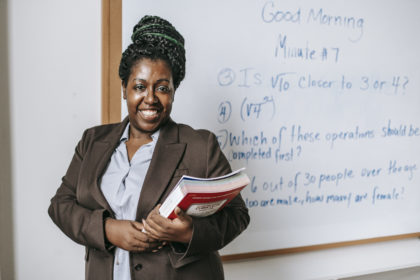When Matt Lunsford decided to write on what it means to be a Christian in Mathematics, he modeled his extended essay, A Christian Mathematician's Apology, after an earlier essay, A Mathematician's Apology, by G. H. Hardy. This is the third of four parts, the first describing finding his vocation and the second on the integrated life. Building on his ideas of the integrated life, in this article Matt outlines his ideas of what "redeeming the discipline" looks like for him as a mathematician. While freedom of … [Read more...] about A Christian Mathematician’s Apology: Redeeming the Discipline
Scholar's Call
A Christian Mathematician’s Apology: Integrating Faith and Mathematics
Last week, math professor Matt Lunsford wrote about his journey of discerning his call to teach mathematics. This week, he describes what it means for him to be a "Christian mathematician" and what it means for him to live the integrated life. ______________________________________ Circa 1996, I embarked on a journey to discover and then to live out the integrated life. I realize that I have not arrived at the final destination. As with most journeys, a guide is invaluable. I found my mentor in a most unusual … [Read more...] about A Christian Mathematician’s Apology: Integrating Faith and Mathematics
A Christian Mathematician’s Apology: Finding My Vocation
We appreciate receiving this extended essay from Matt Lunsford, a professor at Union University. His story is a wonderful example of a journey of thinking Christianly about one's field of study and work in academia. In this first of four parts, Matt describes how he discerned his calling to study and teach mathematics. ___________________________________________ The idea of writing about my goal of living an integrated life as a Christian mathematician grew out of a desire to respond to G. H. Hardy's … [Read more...] about A Christian Mathematician’s Apology: Finding My Vocation
Scholar’s Call: The Student Who Walked Away
In today's Scholar's Call piece, Paul Yandle meditates on how the experience of teaching shows him more about God, even in those moments when a student's response is not what the professor was hoping for. … [Read more...] about Scholar’s Call: The Student Who Walked Away
Scholar’s Call: The Joy of Becoming a Generalist
The first day of the fall semester of my senior undergraduate year, I ran into a friend of mine, a fellow history major, outside of the student union building at the research university we attended. We stopped and talked for a bit, updating each other on our lives and comparing our fall schedules. My friend had just been to the university bookstore, and he showed me a textbook he had just bought for a History of the Old South class that the history department was offering that fall. Intrigued, I sat in on the class and … [Read more...] about Scholar’s Call: The Joy of Becoming a Generalist




